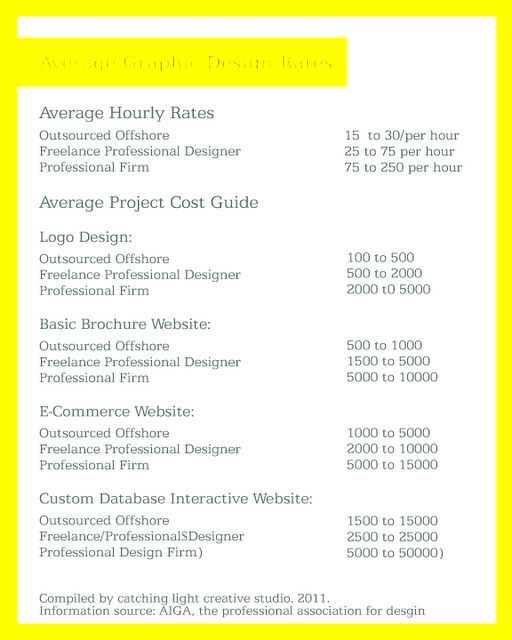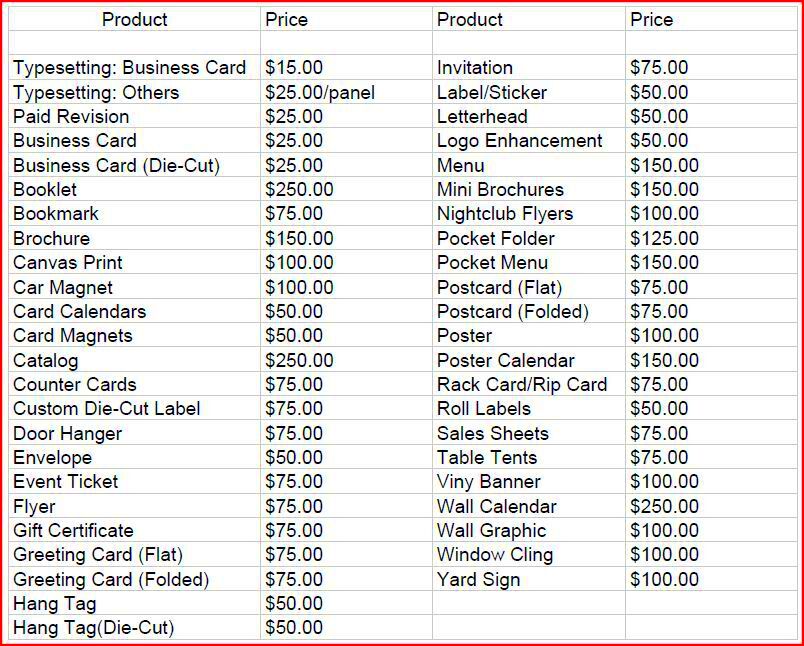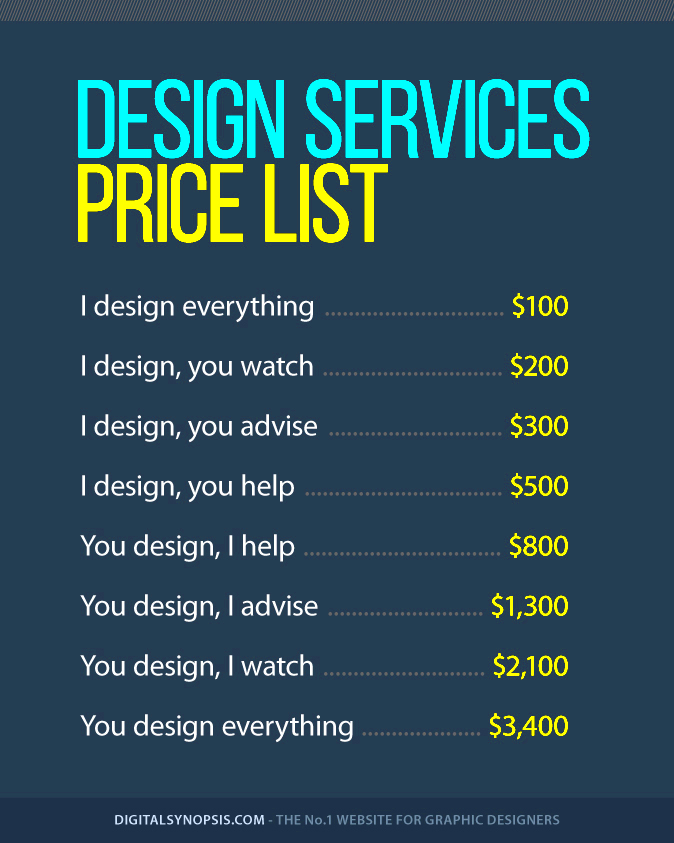Pricing of freelance graphic designs can profoundly differ depending on many factors. It is important to know how much you should charge, whether you are a beginner in this industry or a professional with vast experience. For you to be competitive in the market, you must be able to set fair amounts for your skills and time that should be rightly paid. This guide examines the different factors that affect pricing and helps in determining when to charge certain rates for your services.
Factors That Influence Freelance Graphic Design Rates

A number of important aspects influence the fees charged by freelance graphic designers. Grasping these can assist both freelancers and clients in forming pragmatic anticipations while negotiating prices of projects.
- Experience Level: Designers with more experience often charge higher rates as they bring a wealth of expertise and a refined skill set to the table.
- Project Complexity: More intricate and detailed projects, such as branding or web design, typically require more time and skill, leading to higher costs.
- Deadline Urgency: Rush jobs often demand a premium since they require the freelancer to prioritize the task over others.
- Geographical Location: Rates can differ based on where the designer lives. Designers from areas with a higher cost of living may charge more.
- Type of Client: Corporate clients may have larger budgets and, therefore, pay more than small businesses or individuals.
- Revisions and Changes: The number of revisions a client requests can also impact the overall cost, especially if these exceed the initial scope of work.
Also Read This: How to Withdraw from Fiverr in Nigeria
Understanding Different Pricing Models

Freelancers typically adopt different pricing structures depending on their tastes or the type of assignment they are handling. Understanding these models enables freelancers to know what is best for them while enabling the clients to have an insight on what they should anticipate.
Below are some of the pricing models that are used most often:
- Hourly Rate: Many freelancers charge by the hour. This model works well for projects where the scope may change, as it ensures the freelancer is compensated for any additional work.
- Project-Based Pricing: In this model, freelancers provide a flat fee for the entire project. This is useful for projects with a clear beginning and end, such as logo design or brochure creation.
- Retainer Model: Clients pay a set fee each month to retain the designer’s services for ongoing work. This model is ideal for long-term clients who need consistent design services.
Every model has its advantages and disadvantages. Hourly rates provide flexibility, but may cause uncertainty for clients. Conversely, project-based pricing offers clarity, but freelancers need to be careful against underestimating time. Retainers offer stability for both parties, but can be difficult to establish for new freelancers.
Also Read This: How to Get Positive Reviews on Fiverr
Average Charges for Various Graphic Design Services

Prices for graphic design services differ significantly, depending on what you want done. There is more time-consuming and complex jobs that raise their costs by default. To illustrate this, we present average prices for some popular graphics designing tasks:
| Service | Average Cost |
|---|---|
| Logo Design | $100 - $1,500 |
| Business Cards | $50 - $300 |
| Brochure Design | $200 - $800 |
| Web Design | $500 - $5,000 |
| Social Media Graphics | $50 - $300 |
| Packaging Design | $200 - $1,500 |
In this regard, while it reflects an average price range for different services therein above said prices can vary depending on such factors as level of complexity, urgency or designer’s experience. At the lower end of the price scale you will find simple designs whilst more complex designs or those requiring heavy customization will cost a lot more. Thus in every occasion before getting into any business transaction both parties should agree on project specifics so as to make sure that costs are reasonable and correspond to what they have done in that project.
Also Read This: Where to Promote Your Fiverr Gig
Hourly vs Project-Based Pricing: Which Is Better?
Freelance graphic designers often face the dilemma of charging hourly or by project when it comes to pricing models. Each of these alternatives has its advantages and disadvantages, which can be assessed in terms of work characteristics and individual preferences.
Hourly Pricing:
In instances where project scopes are ambiguous or subject to change, hourly charging frequently proves to be a workable solution. This ensures that the designer gets paid for every hour worked, encompassing any extra assignments or revisions made.
- Pros: Flexibility, especially for ongoing or evolving projects; ensures fair compensation for time spent.
- Cons: Clients may be concerned about rising costs if the project takes longer than expected.
Project-Based Pricing:
In project pricing, the designer gives a set amount for the complete project. This method is useful in jobs that are clearly defined, like creating logos or brochures.
- Pros: Predictability for both parties, as the cost is determined upfront; works best for well-defined projects.
- Cons: If the project takes more time than anticipated, the designer risks being underpaid.
In conclusion, the type of project and the comfort level of both the freelancer and the client determines which approach is best. There are even some designers who offer some tasks at an hourly rate while charging a fixed fee for others.
Also Read This: What is Mandatory Metadata in Fiverr?
How Experience and Skill Level Affect Pricing
In deciding how much to charge a graphic designer, experience and skill are the most important factors. On the other hand, experts designers usually quote high because they have been in the field for long enough to show what they are capable of and also do work faster. Pricing is usually influenced by the following experience levels:
- Entry-Level Designers: Freelancers with less than 2 years of experience usually charge lower rates, often between $15 and $50 per hour. They are still building their portfolios and may be more flexible in pricing to attract new clients.
- Mid-Level Designers: With 3 to 5 years of experience, mid-level designers typically charge between $50 and $100 per hour. They have developed a solid portfolio and have the skills to handle a variety of projects.
- Senior-Level Designers: Designers with over 5 years of experience or specialized skills often charge $100+ per hour. These professionals are highly sought after for complex projects, such as branding, UX/UI design, or high-end web design.
Beyond just experience, specific skills such as animation, UX/UI design, or sophisticated illustration may also result in better rates. This competency is appreciated by clients who often make an extra payment for more excellent work.
Also Read This: Excelling in Freelancing
Tips for Setting Your Freelance Graphic Design Rates
When you're venturing into the world of freelancing as a graphic designer; it can be perplexing to set your rates properly. This is because prices should relate directly to your experience, skills and the value that you offer. So go through these tips and set reasonable yet competitive prices:
- Research Industry Standards: Take time to look at what other freelancers with similar experience are charging. This gives you a good baseline and ensures you don’t undervalue your work.
- Consider Your Expenses: Remember that as a freelancer, you’re responsible for your own expenses like software subscriptions, taxes, and health insurance. Factor these into your rates to make sure you’re not underpricing yourself.
- Know Your Worth: Your skills and expertise have value. Don’t be afraid to charge rates that reflect your experience and the quality of your work.
- Offer Tiered Pricing: Consider creating packages or tiered pricing for different types of projects. This allows clients to choose what best fits their budget while also giving them options for more comprehensive services.
- Be Flexible, But Set Boundaries: It’s okay to adjust your rates for long-term clients or special projects, but make sure you’re not constantly compromising on your worth. Set clear boundaries to avoid being taken advantage of.
- Review and Adjust Rates Periodically: As you gain more experience and skills, don’t hesitate to adjust your rates. Regularly reviewing your pricing ensures you’re staying competitive and aligned with your growing expertise.
You're educated from information until the month of October 2023.
Also Read This: What Does Live Portfolio Mean on Fiverr?
FAQs About Freelance Graphic Design Pricing
When pricing comes into play, one question is always in the minds of freelance graphic designers. Let’s look at a few of the most common queries and their solutions:
- How much should I charge for my first project? If you're just starting, consider charging on the lower end of the industry average, typically between $20 and $50 per hour. As you gain more experience, you can increase your rates.
- Do I charge more for rush projects? Yes, it's common to charge a premium for urgent or last-minute work. A 25-50% increase is typical for rush jobs.
- How do I handle clients who want to negotiate? It’s okay to negotiate, but make sure you’re not underpricing yourself. If necessary, adjust the scope of work to match the client's budget rather than reducing your rates.
- Should I charge extra for revisions? Most freelancers include a set number of revisions in their project fees. If the client requests additional revisions beyond the agreed limit, you can charge extra.
- How do I explain my rates to potential clients? Be transparent about what your rates include. Explain the value you provide and how your work will benefit their business. A clear, confident explanation often helps clients understand and agree to your pricing.
Conclusion on Freelance Graphic Design Charges
There’s a fine line between skill and experience when it comes to pricing for freelance graphic design. In this case, one size does not fit all but knowing the aspects that affect prices, common pricing models, and how experience affects pricing aids you in making better decisions.
It does not matter if one is a rookie freelancer or has lived in this field for long, fair prices for services are crucial to show how good people are and still be able to face competition. A successful freelance graphic design business is possible by being knowledgeable about current market trends; understanding your value; and adjusting prices when necessary.
Keep in mind that the appropriate pricing strategy not only fuels the growth of your company but also strengthens client trust. An equitable and clear pricing enhances a win-win scenario for both contractors and clients.




